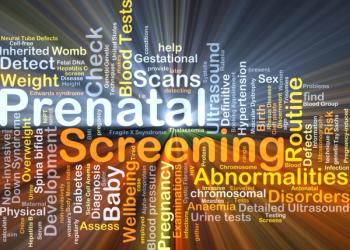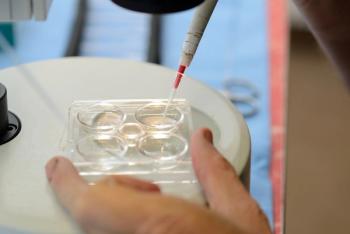
Genetic Testing
Latest News
Latest Videos

CME Content
More News

A new report in Pediatrics investigated whether black children were likely to have more complications and greater mortality following surgery than their white peers.

During a routine office visit, a patient mentions that she recently submitted a saliva sample to 23andMe. The company performed BRCA analysis and the patient wants to discuss the results with you. How should you approach the discussion?

A new study suggests that polycystic ovary syndrome (PCOS) may be linked to the epidermal growth factor receptor (EGFR) and the Hippo pathways.

Guidelines from the National Comprehensive Cancer Network (NCCN) list seven criteria for genetic testing in women with breast cancer.

This quiz reviews some of the major takeaways from the February 2019 article, New tools for counseling on prenatal genetic testing.

A decision aid for aneuploidy screening and testing could provide women with knowledge comparable to genetic counseling alone, according to new research.

As simplified and streamlined BRCA1/2 testing becomes more available, a new study examined whether patients prefer this method of counseling.

Almost 25% of women with breast cancer have a family history of the disease and, those who do have a higher risk of developing cancer.

These 11 statements to guide decision-making with patients can help patients fully consider their values and preferences in regard to prenatal testing.

Obstetricians need to have a strategy to provide basic pretest education and counseling to their pregnant patients.

In a busy obstetrical practice, use of a family history questionnaire or checklist is usually the most practical means of assessment.

Screening based solely on family history isn't sufficient enough, so new research suggests incorporating these additional tests into your screening practices.

New research illustrates how a modified genetic counseling model can be completed in half the time of the traditional model but still be just as effective in reducing cancer-specific distress.

Results from a prospective study indicate that cfDNA testing for trisomy 21 may be just as effective in twin pregnancies as singletons.

A new study aimed to better understand why birth control may fail for some women by looking at genetic variants.

As new screening options become available, ob/gyns must be able to counsel their pregnant patients appropriately.

Similar to population screening of newborns for over 30 genetic conditions, routine genomic screening for all patients is becoming increasingly viable.

We want to hear from you! Have you noticed if more patients are asking about genetic testing?

Parents want answers following pregnancy loss or perinatal death and genetic testing has the potential to not only determine the cause but also predict the likelihood of a recurrence in future pregnancies.

The largest randomized trial published to date examined whether chromosome screening of select embryos for transfer improves the likelihood of a live birth. Steve Ory, MD, a member of the Contemporary OB/GYN editorial board provides commentary on the findings.

A recent study designed to reflect clinical practice examined whether preimplantation genetic testing increased live birth rates in women of advanced maternal age.

Improved noninvasive testing to detect genetic abnormalities early in pregnancy has been a goal of researchers, and now a team of Australian and Russian biomedical engineers has developed a tiny microfluidic device that could pave the way for such testing.

Women at increased risk for trisomy 21 who have suffered previous miscarriages and have a lower level of education are those most likely to refuse amniocentesis during pregnancy, according to new research.

Mammography is sufficient to predict breast cancer risk in women aged ≥ 60, but in younger women, combining mammography and genetic testing improves the assessment, according to a retrospective case-control study

Ob/gyns have a responsibility and can no longer be passive in this genomic era.









